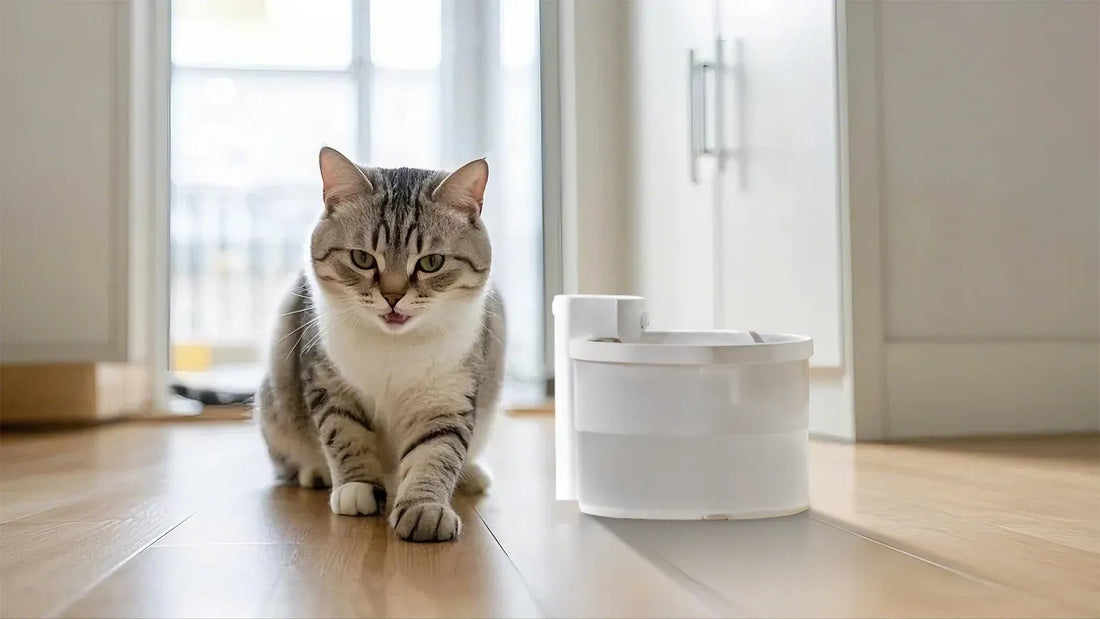If you've noticed that your cat is drinking a lot of water and urinating a lot, it's natural to feel concerned. While this behavior might seem harmless at first, it could be a sign of an underlying health issue. Understanding the possible causes and knowing when to consult a veterinarian can help ensure your feline friend stays healthy and happy.
Why Is My Cat Drinking More Water Than Usual?
Increased water consumption, also known as polydipsia, can be caused by various factors. Some are relatively benign, while others may require immediate attention. Here are some common reasons why your cat might be drinking more water:
- Dietary Changes: If you've recently switched your cat's food to a drier or saltier option, they may naturally drink more water to compensate.
- Environmental Factors: Hot weather or increased activity levels can lead to higher water intake.
- Medications: Certain medications can cause thirst as a side effect.
- Health Conditions: More serious issues like diabetes, kidney disease, or hyperthyroidism can also lead to increased thirst.
Why Is My Cat Urinating More Frequently?
Frequent urination, or polyuria, often accompanies increased water intake. Here are some potential causes:
- Urinary Tract Infections (UTIs): Infections can irritate the bladder, causing your cat to urinate more often.
- Diabetes: High blood sugar levels can lead to excessive urination as the body tries to eliminate excess glucose.
- Kidney Disease: The kidneys may struggle to concentrate urine, resulting in more frequent trips to the litter box.
- Behavioral Issues: Stress or anxiety can sometimes cause changes in urination patterns.
When Should I Be Concerned?
While occasional changes in water intake and urination may not be cause for alarm, certain signs warrant a visit to the vet:
- Sudden Changes: If your cat's behavior changes abruptly, it could indicate a serious issue.
- Other Symptoms: Lethargy, weight loss, vomiting, or changes in appetite alongside increased thirst and urination are red flags.
- Persistent Behavior: If the behavior continues for more than a few days, it's best to seek professional advice.
How Can I Help My Cat?
If you're worried about your cat's increased water intake and urination, there are steps you can take to support their health:
- Monitor Their Behavior: Keep track of how much water your cat is drinking and how often they urinate.
- Provide Fresh Water: Ensure your cat always has access to clean, fresh water.
- Adjust Their Diet: If dietary changes are the cause, consider switching back to their previous food or consulting your vet for recommendations.
- Reduce Stress: Create a calm environment to help alleviate any anxiety-related issues.
What Will the Vet Do?
During your visit, the vet will likely perform a thorough examination and may recommend diagnostic tests such as blood work, urine analysis, or imaging. These tests can help identify the root cause of your cat's symptoms and guide appropriate treatment.
Preventing Future Issues
While not all causes of increased water intake and urination can be prevented, there are steps you can take to support your cat's overall health:
- Regular Check-ups: Routine veterinary visits can help catch potential issues early.
- Balanced Diet: Feed your cat a high-quality, balanced diet to support their overall well-being.
- Hydration: Encourage your cat to drink water by providing multiple water sources or using a cat water fountain.
- Exercise: Regular play and activity can help maintain a healthy weight and reduce stress.
If your cat is drinking a lot of water and urinating a lot, it's essential to pay attention to their behavior and seek veterinary advice if needed. Early detection and intervention can make a significant difference in your cat's health and quality of life. Don't wait—take action today to ensure your feline companion remains happy and healthy.














